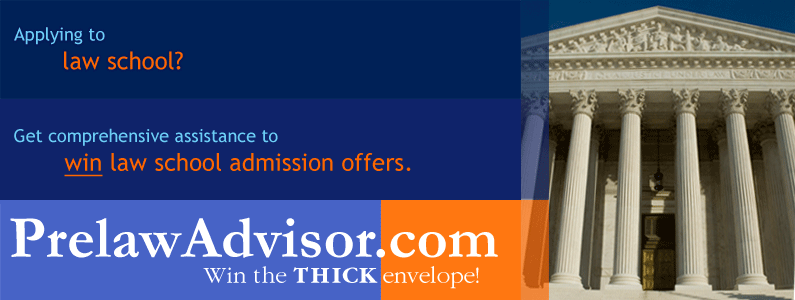Question #7: What Do You Mean By Law-Related Reading?
Many prelaw students operate under the assumption that there really is nothing that they need to study in particular prior to starting law school. The reality is that there is a great deal one can read and study profitably in advance of law school. Remember, your goal is not just law school admission, but achievement of academic success while in the right law school for you, through a plan of self-development that includes reading books and materials that you will never have time for once you are actually in law school.Start by looking at the Internet Legal Resources Group (at www.ilrg.com). Note the many resources and materials available there.
Next, check out the bibliography "Resources for the Prelaw Candidate" (this link will download a PDF) in the ABA-LSAC Official Guide to ABA-Approved Law Schools. How many of these books have you read? You could spend years profitably reading from this list. Pick a book of interest to you and get started.
Third, visit a good law bookstore, such as one associated with a top law school. Note that in examining the materials there for first-year students, you see two major categories of materials-official texts and handouts from law school professors for use in first-year classes, and a vast and varied assortment of unofficial materials that are commercial study aids for law students. My recommendation is that you start learning about the law now by purchasing some of the commercial study aids, one for each first-year course, and master them now before law school starts. One example would be the "Nutshell" series (such as "Contract Law in a Nutshell"). Such materials can give you a better perspective on the field of law you will shortly be studying.
You might also consider contacting the BAR-BRI organization, which offers post-law school bar exam preparation. BAR-BRI prepares and sells useful outlines on all areas of the law that are covered by each state's bar exam. These outlines, typically not used by law students until after they finish law school and are in a six-week cram study period for the bar, are actually quite useful as legal introductories for the pre-law student.
Understand that many law school professors hold such commercial prep materials in low regard. However, I am not proposing that you use such materials for legal research, but only as broad, general and useful introductory materials, read before law school starts, to give you a more informed basis on which to build your learning in law school.
Go to Question #8: Do I need to go visit a law school I'm interested in?
